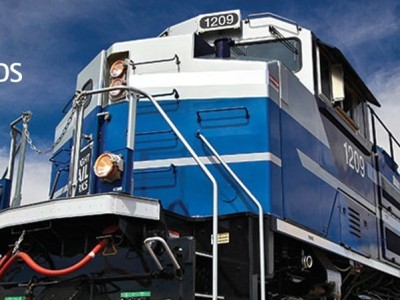Truckers hauling food mean no nation is an island
Jack Fleming, chief executive of the U.K. trucking-logistics firm Chill-Chain, ditched the office recently and headed for a place where he knew he would find refrigerated lorries moving food during the coronavirus pandemic: Dover, England’s closest port to France.
“I stood there with a notebook writing down all the fleets coming in,” says Fleming, who sent another member of his team to do the same at a key road crossing over the River Thames on the outskirts of London.
Chill-Chain’s recon missions illustrate how the transportation industry is scrambling to keep food supplies stocked on grocery shelves. Across the globe, truckers are encountering delays along distribution chains snarled by the coronavirus pandemic.
At a briefing Friday in Geneva, a United Nations spokesman said European shops and supermarkets generally have enough fruits and vegetables but cautioned that there will be more food-supply difficulties and price increases.
For the U.K., truckers are a particularly important economic lifeline, and it doesn’t help that there was already a shortage of British heavy-goods vehicle drivers, estimated at around 60,000 last year by the Freight Transport Association — roughly one for every 1,100 residents. The dearth in haulage capacity has forced the U.K. government into changing its regulations, relaxing rules limiting drivers’ hours and temporarily lifting the requirement for existing truckers to retrain every five years.
But how could there be a food truck shortage when so much industrial production is idle? Shifting freight capacity across industries is expensive and timely. On top of that, some fleets that are facing weak demand now are furloughing staff while others like supermarket suppliers are overbooked and even vulnerable to becoming overwhelmed.
The situation may get worse as drivers fall ill. British importers are already struggling to find truckers and paying more when they do. According to Lee Stiles, secretary of the Lea Valley Growers Association, deliveries of fresh produce from farms in Spain cost an extra 2,000 pounds ($2,500) per trip due to a shortage of available drivers willing to take the journey with nothing to carry back.
Richard Harrow, chief executive of the British Frozen Food Federation, said drivers getting sick are “high on everyone’s agenda” and he’s working with other labor associations to facilitate moving workers to the areas of supply chains most under pressure. Last week, his federation launched a plea for haulage firms with idle vehicles that can be re-appropriated to keep the food chain moving.
If not, Fleming may need to make another run to Dover. “There will be another capacity crunch in the coming weeks as the capacity of road transport all across Europe gets eroded as drivers catch the virus,” he says.
Similar Stories

AAR applauds Patrick Fuchs STB Chairman designation
View Article
AAR Statement on the Inauguration of Donald J. Trump
View ArticleBlueGrace Logistics Announces 2024 LTL Carrier Award Winners: Southeastern Freight Lines and Old Dominion Freight Line
BlueGrace Logistics (BlueGrace), a leading Third-Party Logistics (3PL) provider operating within North America, is excited to announce the recipients of its 2024 LTL (Less-Than-Truckload) Carrier Awards, honoring carriers who demonstrate…
View ArticleFTR Reports U.S. trailer net orders in December at 25,334 units, the most since October 2023
Total trailer production declined 10% m/m in December to 11,827 units, a relatively typical seasonal drop. However, production was down 40% y/y – 43% below the five-year December average –…
View ArticleRPA Statement on Thomas Prendergast as CEO of the Gateway Development Commission
Regional Plan Association applauds the selection of Thomas Prendergast to be the new CEO of the Gateway Development Commission (GDC). Tom‘s experience delivering major capital projects, including the first phase…
View Article
2025 Mid-West Truck & Trailer Show: The tradition continues
View ArticleGet the most up-to-date trending news!
SubscribeIndustry updates and weekly newsletter direct to your inbox!





